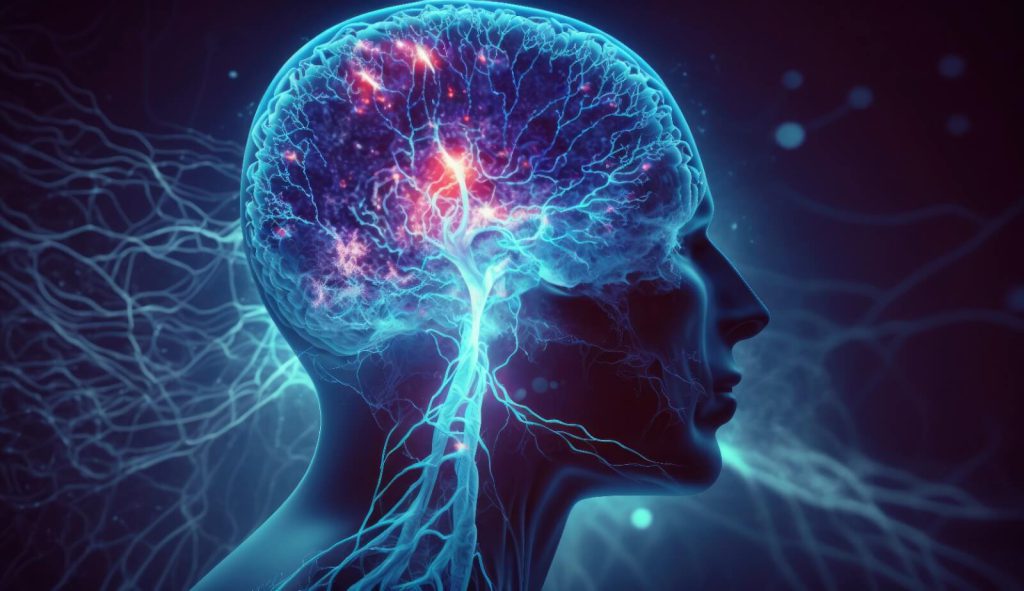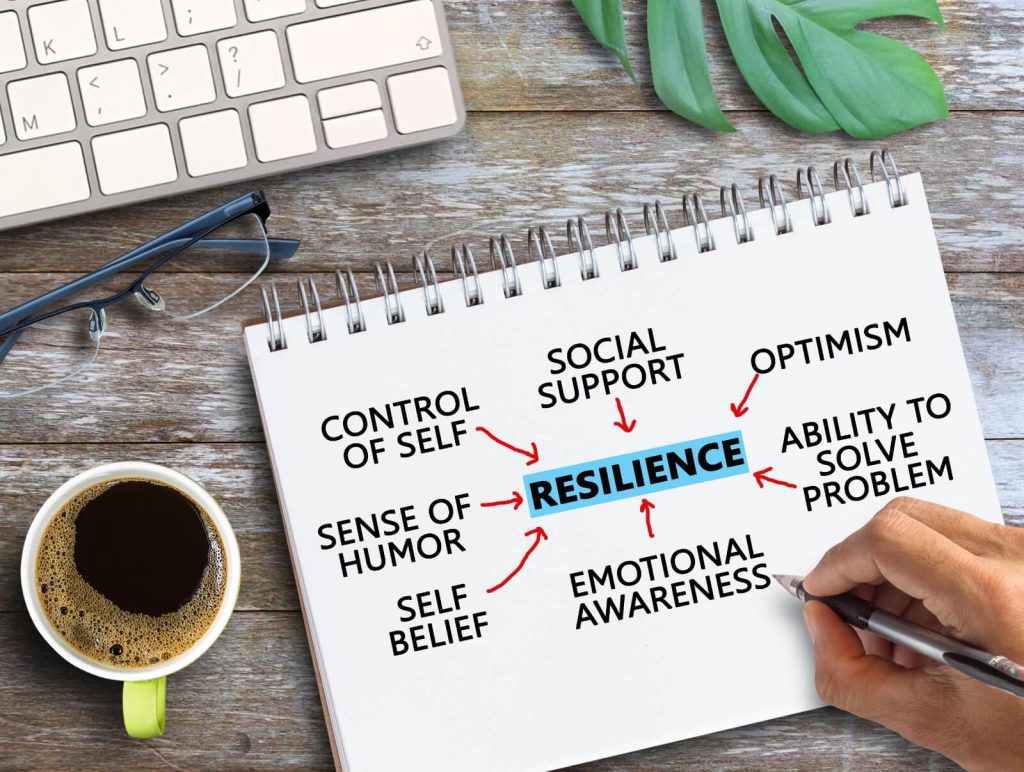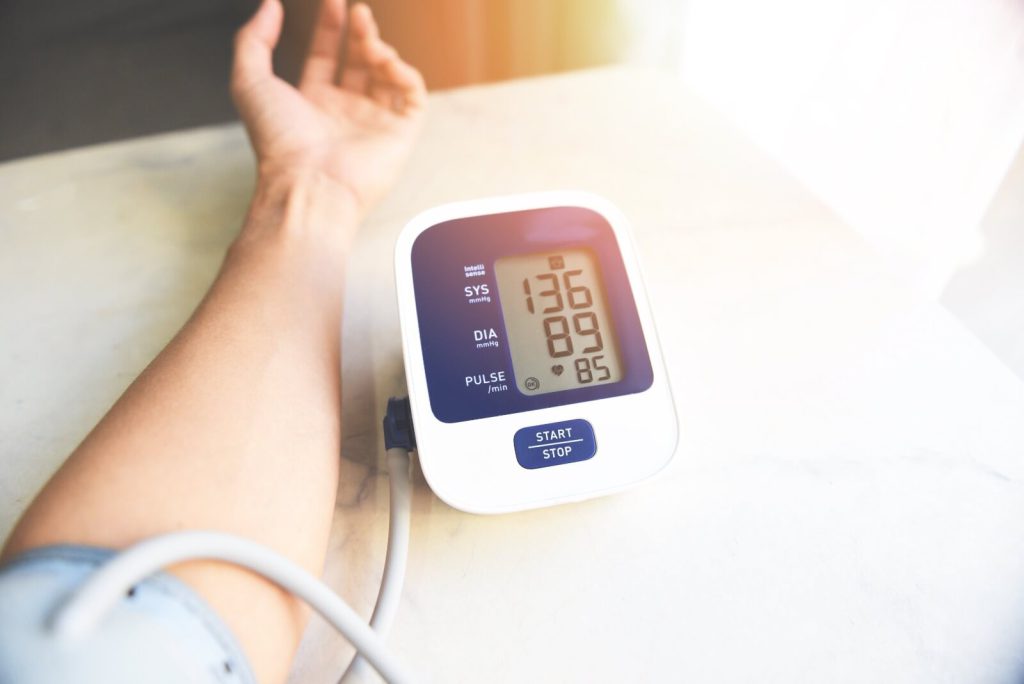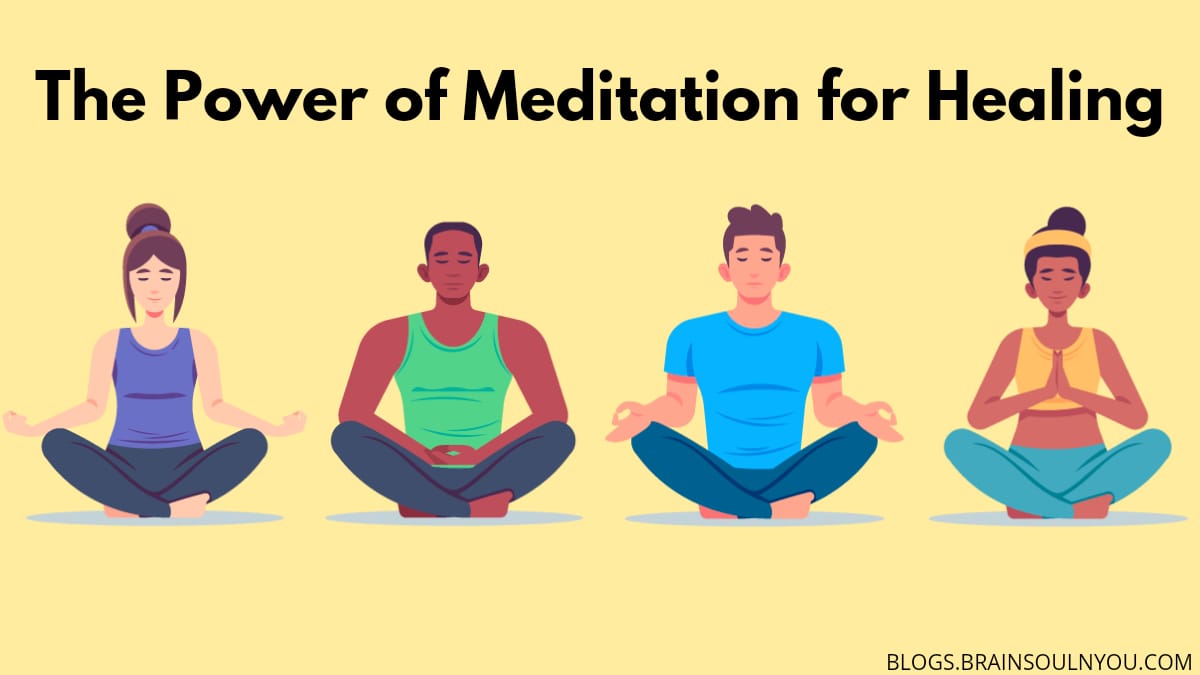Most people are unaware of the power of meditation for healing. They have a wrong concept of meditation. They think that closing their eyes and focusing only on one point is meditation. And doing it is considered boring. I have noticed one thing, often people don’t understand simple things so easily or can say they have less attention span towards simple things. This is the reason why a simple practice of meditation is the most difficult task for people.
What is Meditation?
Meditation is a practice that involves training the mind and focusing attention to achieve a state of mental clarity, emotional calmness, and inner peace. It is often done by sitting quietly in a comfortable position and directing one’s attention to a specific object, such as the breath, a mantra, or a specific sensation.
Although meditation is simple, many people do not understand it. The reason for this is the misconception in the mind about it. There is no fixed definition of meditation. Meditation is to do any work with full attention and not to let your thoughts wander here and there. It is so powerful that it engages your body’s natural ability to heal itself.

Science has also proved that thought alone can heal you physically, mentally, emotionally, and financially. But to recover from thought you have to practice meditation.
The practice of meditation has been around for thousands of years and is associated with various religious and spiritual traditions. However, in recent years, meditation has gained popularity as a secular practice with numerous scientifically studied benefits for mental, emotional, and physical well-being.
Here are some of the science-based benefits of meditation:
Science-Based Benefits of Meditation
Meditation has been practiced for thousands of years and has gained significant attention in recent decades due to its potential benefits for mental, emotional, and physical well-being. While individual experiences may vary, several science-based benefits of meditation have been studied and reported. Here are some of them:
Heal Traumas
Meditation can play a supportive role in the healing process for individuals who have experienced trauma. While it’s important to note that meditation alone may not be sufficient for trauma recovery, it can be a valuable tool when used in conjunction with other therapeutic approaches. Here are some ways in which meditation may help in healing traumas:
Regulation of the Nervous System: Trauma can dysregulate the nervous system, leading to symptoms such as hypervigilance, anxiety, and a heightened stress response. Meditation practices, particularly those focused on calming the mind and body, can help regulate the nervous system by activating the relaxation response and reducing the physiological symptoms of stress.
Emotional Regulation: Trauma survivors often struggle with overwhelming emotions and may find it challenging to regulate their emotional responses. Meditation can enhance emotional regulation by cultivating mindfulness and increasing self-awareness of one’s emotional state. It provides a space to observe emotions without judgment and develop healthier coping mechanisms.

Processing Traumatic Memories: Mindfulness-based approaches, such as mindfulness-based stress reduction (MBSR) and mindfulness-based cognitive therapy (MBCT), can help individuals develop an accepting and non-reactive stance towards traumatic memories. Through meditation, individuals can create a safe space to gently explore and process traumatic experiences at their own pace.
Building Resilience and Self-Compassion: Meditation practices can contribute to the development of resilience and self-compassion, which are crucial aspects of trauma healing. Regular meditation cultivates a sense of inner strength, adaptability, and the ability to cope with difficult emotions. It also promotes self-compassion, fostering a kind and caring attitude toward oneself, which is essential for healing from trauma.
Body Awareness and Grounding: Trauma can lead to disconnection from the body and a sense of feeling unsafe or disconnected from the present moment. Meditation practices that focus on body awareness, such as body scans and mindful movement, can help individuals reconnect with their bodies and develop a sense of safety and grounding.
Mind-Body Integration: Trauma often results in a fragmentation of the mind and body. Meditation can facilitate mind-body integration by fostering a greater sense of coherence and connection. By cultivating present-moment awareness and experiencing sensations in the body without judgment, individuals can develop a greater sense of wholeness and integration.
It’s important to approach meditation as part of a comprehensive trauma healing plan, working with qualified professionals who specialize in trauma therapy. Trauma can be complex, and it’s essential to have appropriate support and guidance throughout the healing process.
Reduces Stress
Yes, meditation is known for its ability to reduce stress. When we experience stress, our body activates the “fight-or-flight” response, releasing stress hormones like cortisol and adrenaline. Chronic stress can have negative effects on our physical and mental well-being. Meditation offers a natural and effective way to counteract the stress response and promote relaxation.
Here’s how meditation helps reduce stress:
Relaxation Response: During meditation, the body enters a state of deep relaxation, triggering the relaxation response. This activates the parasympathetic nervous system, which counteracts the “fight-or-flight” response and promotes a state of calmness and relaxation.
Decreased Cortisol Levels: Regular meditation practice has been shown to reduce cortisol levels in the body. Cortisol is a hormone associated with stress, and high levels of cortisol can contribute to anxiety, mood disorders, and other stress-related health issues.
Emotional Regulation: Meditation helps cultivate mindfulness, which involves non-judgmental awareness of the present moment. This awareness allows individuals to observe their thoughts and emotions without getting caught up in them. By developing a more balanced and compassionate relationship with their thoughts and emotions, people can better manage stress and respond to challenging situations with greater clarity and composure.

Improved Resilience: Regular meditation practice can enhance resilience to stress. It helps individuals develop mental and emotional strength, enabling them to bounce back more quickly from stressful events and maintain a positive outlook even in difficult circumstances.
Enhanced Self-Care: Meditation promotes self-care and self-awareness. By setting aside time for meditation, individuals prioritize their well-being and create space for self-reflection and self-care practices. This can lead to better stress management and a more balanced lifestyle.
Reduced Psychological Symptoms: Research has shown that meditation can help reduce symptoms of anxiety, depression, and other stress-related psychological disorders. It provides individuals with tools to cultivate a sense of calm, balance their emotions, and develop a more positive mindset.
It’s important to note that meditation is not a quick fix for stress. Like any skill, it requires regular practice and commitment to experience its benefits. Even a few minutes of meditation per day can make a difference in reducing stress levels over time. By incorporating meditation into your routine, you can develop greater resilience, promote relaxation, and improve your overall well-being.
Controls Anxiety
Yes, meditation is effective in controlling anxiety. Anxiety is a common mental health condition characterized by excessive worry, fear, and nervousness. It can have a significant impact on a person’s daily life and well-being. Meditation offers a natural and accessible approach to managing anxiety and promoting emotional well-being.
Here are ways in which meditation can help control anxiety:
Relaxation Response: Meditation activates the body’s relaxation response, counteracting the physiological effects of anxiety. By focusing attention and engaging in deep breathing or other relaxation techniques during meditation, individuals can induce a state of deep relaxation, reducing the physical symptoms of anxiety such as rapid heartbeat, shallow breathing, and muscle tension.
Mindfulness and Awareness: Meditation cultivates mindfulness, which involves paying non-judgmental attention to the present moment. By developing awareness of their thoughts, feelings, and bodily sensations, individuals can observe anxious thoughts and emotions without getting overwhelmed by them. This allows for a more balanced and compassionate response to anxiety, reducing its intensity and power.

Cognitive Restructuring: Through meditation, individuals can become more aware of their thought patterns and gain insight into the automatic negative thoughts that contribute to anxiety. With practice, they can learn to challenge and reframe these thoughts, replacing them with more positive and realistic ones. This process, known as cognitive restructuring, helps to reduce anxiety and promote a more positive mindset.
Emotional Regulation: Regular meditation practice can enhance emotional regulation skills, allowing individuals to better manage and cope with anxiety-provoking situations. By cultivating a greater sense of self-awareness and self-compassion, individuals can respond to anxiety with greater clarity and resilience, reducing the impact it has on their emotional well-being.
Stress Reduction: Meditation helps to reduce overall stress levels, which can contribute to anxiety. By activating the relaxation response and promoting a sense of calm and balance, meditation reduces the physiological and psychological factors that contribute to anxiety. This can lead to a greater sense of calm and an improved ability to cope with stressors.
Increased Self-Acceptance: Meditation encourages self-acceptance and self-compassion, which can be particularly beneficial for individuals struggling with anxiety. By practicing non-judgmental awareness and cultivating a kind and accepting attitude towards oneself, individuals can reduce self-criticism and develop a more positive and nurturing relationship with themselves.
It’s important to note that meditation should not replace professional treatment for anxiety disorders. However, it can be a valuable complementary tool to manage anxiety symptoms and promote overall well-being. If you’re dealing with anxiety, consider incorporating meditation into your daily routine, either on your own or with the guidance of a meditation teacher or app.
Promotes Emotional Health
Yes, meditation has been shown to promote emotional health and well-being. Regular meditation practice can have a positive impact on various aspects of emotional well-being, including the following:
Stress Reduction: Meditation helps to reduce stress by activating the body’s relaxation response. It can lower levels of stress hormones like cortisol and promote a sense of calm and relaxation. By reducing stress, meditation can help improve emotional resilience and decrease the risk of stress-related disorders.
Emotional Regulation: Meditation can enhance emotional regulation skills, allowing individuals to better understand and manage their emotions. Through mindfulness and non-judgmental awareness, meditation helps individuals observe their emotions without getting carried away by them. This increased awareness and acceptance of emotions can lead to more balanced and skillful responses to challenging situations.

Increased Self-Awareness: Meditation cultivates self-awareness by encouraging individuals to pay attention to their thoughts, feelings, and bodily sensations. This heightened self-awareness allows individuals to better understand their emotions, triggers, and patterns of behavior. With this awareness, individuals can make conscious choices and respond to their emotions more constructively and compassionately.
Enhanced Resilience: Regular meditation practice can improve resilience, which is the ability to bounce back from adversity and cope with life’s challenges. By developing a regular meditation practice, individuals can cultivate mental strength, inner resources, and a greater sense of equanimity. This can help them navigate through difficult emotions and experiences with greater ease and adaptability.
Reduced Anxiety and Depression: Meditation is effective in reducing symptoms of anxiety and depression. It promotes a sense of calm, relaxation, and a positive mood. By calming the mind and reducing rumination, meditation can help alleviate symptoms of anxiety and depression and promote a more positive outlook on life.
Increased Positive Emotions: Meditation can foster the development of positive emotions such as joy, gratitude, and compassion. By cultivating a state of present-moment awareness and cultivating positive qualities through meditation practices like loving-kindness or gratitude meditation, individuals can experience more positive emotions and overall emotional well-being.
It’s important to note that meditation is not a substitute for professional mental health care. However, it can be a valuable complement to therapy or other treatments for emotional health. If you’re interested in incorporating meditation into your routine, consider starting with short, regular sessions and seek guidance from a qualified meditation teacher or use reputable meditation apps that offer guided meditations.
Increases Self-Awareness
Yes, meditation is known to increase self-awareness. Self-awareness refers to the ability to observe and understand oneself, including thoughts, emotions, sensations, and patterns of behavior. Through regular meditation practice, individuals can develop a deeper understanding of their inner experiences and the workings of their own minds.
Here’s how meditation can enhance self-awareness:
Mindfulness: Mindfulness meditation, which involves paying attention to the present moment without judgment, is a powerful practice for developing self-awareness. By bringing attention to the present moment, individuals become more attuned to their thoughts, emotions, bodily sensations, and the environment around them. This heightened awareness allows them to observe their experiences without getting caught up in them or reacting impulsively.
Observing Thoughts and Emotions: During meditation, individuals learn to observe their thoughts and emotions as they arise without getting carried away by them. This practice helps in recognizing patterns of thinking and emotional reactions, gaining insights into the workings of the mind, and developing a sense of detachment from thoughts and emotions. Through this process, individuals can cultivate a greater understanding of their own mental and emotional patterns.

Noticing Sensations in the Body: Meditation often involves paying attention to bodily sensations, such as the breath, sensations of tension or relaxation, or physical discomfort. By directing attention to the body, individuals become more attuned to the physical sensations associated with different emotions, stress, or relaxation. This deepened awareness of the body-mind connection can provide valuable insights into the relationship between physical sensations and mental and emotional states.
Cultivating Non-judgmental Awareness: Meditation encourages a non-judgmental and accepting attitude toward one’s experiences. By observing thoughts, emotions, and sensations without labeling them as good or bad, individuals develop a more open and compassionate relationship with themselves. This non-judgmental stance allows for greater self-acceptance and self-understanding.
Reflecting on Personal Values and Intentions: Meditation provides a space for individuals to reflect on their values, aspirations, and intentions. By creating moments of stillness and introspection, meditation allows individuals to connect with their deepest desires and align their actions with their authentic selves. This process of self-reflection fosters self-awareness and helps individuals make choices and decisions that are in alignment with their values and goals.
By increasing self-awareness, meditation can support personal growth, emotional well-being, and the development of healthier and more fulfilling relationships with oneself and others.
Improves Sleep
Yes, meditation has been found to improve sleep quality. Many people struggle with sleep-related issues such as insomnia, difficulty falling asleep, staying asleep, or experiencing restless nights. Regular meditation practice can help address these problems and promote better sleep. Here’s how meditation can improve sleep:
Reducing Stress and Relaxation: Meditation is known to induce a relaxation response in the body, which helps in reducing stress levels. By practicing meditation before bedtime, individuals can release accumulated stress and tension, allowing their body and mind to relax and prepare for sleep.
Calming the Mind: Meditation involves focusing attention and quieting the mind. This practice can be especially beneficial for individuals who struggle with racing thoughts, worry, or overthinking at bedtime. By calming the mind through meditation, individuals can let go of mental chatter and create a more peaceful state conducive to sleep.

Managing Anxiety: Anxiety and stress often contribute to sleep difficulties. Meditation techniques, such as mindfulness meditation, can help individuals manage anxiety and reduce its impact on sleep. By cultivating present-moment awareness and learning to observe thoughts and emotions without judgment, individuals can create a sense of calm and reduce anxiety levels before bedtime.
Enhancing Relaxation Techniques: Meditation can be combined with other relaxation techniques to improve sleep. For example, progressive muscle relaxation, deep breathing exercises, or guided imagery can be incorporated into a meditation practice to promote relaxation and prepare the body for sleep.
Improving Sleep Hygiene: Meditation can also support the development of good sleep hygiene habits. By establishing a regular meditation practice, individuals may naturally become more mindful of their sleep routines, such as creating a peaceful sleep environment, maintaining a consistent sleep schedule, and avoiding stimulants before bedtime.
It’s important to note that the benefits of meditation for sleep may vary among individuals. Some people may experience immediate improvements in sleep, while others may require consistent and long-term practice to see noticeable changes. Additionally, it’s recommended to seek guidance from a qualified meditation teacher or healthcare professional if sleep problems persist or are related to an underlying sleep disorder or medical condition.
Overall, incorporating meditation into a bedtime routine can promote relaxation, reduce stress and anxiety, and create a conducive environment for better sleep.
May Reduce Age-Related Memory Loss
Yes, there is evidence to suggest that meditation may have a positive impact on age-related memory loss. As individuals age, it’s common to experience changes in cognitive function, including memory decline. However, research has shown that regular meditation practice can potentially mitigate these effects and improve memory function. Here’s how meditation may reduce age-related memory loss:
Attention and Focus: Meditation practices, such as mindfulness meditation, involve training the mind to focus on the present moment. This practice can enhance attention and concentration skills, which are crucial for memory formation and retention.
Stress Reduction: Chronic stress is known to have negative effects on memory and cognitive function. Meditation is a powerful tool for reducing stress levels and promoting relaxation. By managing stress, meditation may help protect against the harmful impact of chronic stress on memory.

Brain Health: Meditation has been found to have positive effects on brain structure and function. Regular meditation practice may increase gray matter volume in brain regions associated with memory and attention, such as the hippocampus and prefrontal cortex. These structural changes may contribute to improved memory function and cognitive abilities.
Mindful Awareness: Mindfulness, a key component of many meditation practices, involves non-judgmental awareness of present-moment experiences. This heightened awareness can extend to the way we process and encode new information, leading to better memory formation and retrieval.
Emotional Regulation: Emotions play a significant role in memory processes. Meditation helps cultivate emotional regulation skills, allowing individuals to better regulate their emotional responses to stressors. This emotional resilience can positively impact memory function.
It’s important to note that the research on meditation and memory is still evolving, and more studies are needed to establish the specific mechanisms and long-term effects. Additionally, individual results may vary, and it’s recommended to adopt a holistic approach to brain health, including regular physical exercise, a balanced diet, and engaging in mentally stimulating activities, in conjunction with meditation.
Overall, incorporating meditation into your daily routine may offer benefits for memory and cognitive function, particularly in reducing age-related memory loss.
Can Generate kindness
Yes, meditation can indeed cultivate kindness and compassion towards oneself and others. Various meditation practices and techniques, such as loving-kindness meditation or compassion meditation, are specifically designed to develop and enhance feelings of kindness, empathy, and compassion. Here’s how meditation can generate kindness:
Cultivating Self-Compassion: Meditation encourages individuals to develop a kind and non-judgmental attitude toward themselves. By practicing self-compassion meditation, individuals learn to acknowledge their own suffering, treat themselves with kindness and understanding, and let go of self-criticism. This self-compassion then extends to others, fostering a sense of kindness and empathy.
Developing Empathy: Meditation practices focused on empathy involve intentionally directing one’s attention and awareness toward the experiences and emotions of others. By developing a deeper understanding of others’ pain, challenges, and joys, individuals can cultivate empathy and compassion toward them.

Loving-Kindness Meditation: This type of meditation involves sending well wishes and positive intentions to yourself, loved ones, neutral individuals, and even challenging individuals or difficult relationships. By regularly practicing loving-kindness meditation, individuals can increase feelings of kindness, love, and compassion toward themselves and others.
Mindful Presence: Simply being present and fully attentive to the current moment can create an atmosphere of kindness and empathy. Mindfulness meditation helps individuals develop the ability to be fully present, to listen deeply, and to respond with kindness and understanding to the experiences of others.
Connection and Interconnectedness: Meditation can cultivate a sense of interconnectedness and shared humanity. As individuals deepen their awareness and understanding of their own thoughts, emotions, and experiences through meditation, they also recognize the common human experiences shared by others. This recognition can foster a sense of kindness, compassion, and a desire to alleviate suffering in the world.
Through regular meditation practice, individuals can strengthen the neural pathways associated with kindness and empathy, leading to a more compassionate outlook on life and interactions with others. It’s important to note that like any skill, cultivating kindness through meditation requires consistent practice and patience. Over time, the effects of meditation can positively influence one’s thoughts, emotions, and behavior, fostering a greater sense of kindness towards oneself and others.
Helps Control Pain
Yes, meditation has been found to have potential benefits in managing and controlling pain. While it may not eliminate pain entirely, it can help individuals develop a different relationship with their pain and reduce its impact on their overall well-being. Here’s how meditation can help control pain:
Increased Pain Tolerance: Regular meditation practice has been shown to increase pain tolerance levels in individuals. By cultivating focused attention and mindfulness, individuals can develop the ability to observe pain sensations without becoming overwhelmed by them. This shift in perception can lead to a greater tolerance of pain and reduce its perceived intensity.
Altering Pain Perception: Meditation can also alter the way individuals perceive pain. Through mindfulness meditation, individuals learn to observe their pain without judgment or resistance. This non-reactive and accepting attitude towards pain can reduce emotional reactivity and distress associated with pain, allowing individuals to experience pain with greater equanimity.

Relaxation Response: Meditation techniques often involve deep relaxation and the activation of the body’s relaxation response. This response counteracts the body’s stress response, which can contribute to pain amplification. By inducing a state of relaxation, meditation can help reduce muscle tension, lower stress levels, and promote overall well-being, which can indirectly alleviate pain.
Shifting Focus: During meditation, individuals are encouraged to redirect their attention away from the pain and onto a specific focal point, such as the breath, a mantra, or a visual object. This redirection of attention can help shift the focus away from pain sensations, providing temporary relief and reducing the perception of pain intensity.
Psychological Well-being: Meditation can positively impact psychological well-being, including reducing anxiety, depression, and stress levels. When individuals experience less psychological distress, it can indirectly influence their experience of pain and make it more manageable.
It’s important to note that meditation is not a standalone treatment for chronic or severe pain conditions. It is often used as a complementary approach alongside other medical treatments and pain management strategies. If you are experiencing chronic or severe pain, it’s advisable to consult with a healthcare professional who can provide appropriate guidance and support.
May Lower Blood Pressure
Yes, meditation has been found to have potential benefits in lowering blood pressure. High blood pressure, or hypertension, is a common health condition that can increase the risk of heart disease, stroke, and other cardiovascular problems. Here’s how meditation can help lower blood pressure:
Relaxation Response: Meditation techniques often induce a state of deep relaxation, which can activate the body’s relaxation response. This response helps counteract the effects of stress and promotes a sense of calmness and well-being. As a result, it can lead to a reduction in blood pressure levels.
Reduced Stress Levels: Chronic stress is known to contribute to high blood pressure. By practicing meditation regularly, individuals can reduce their overall stress levels. Meditation promotes a state of mental calmness, relaxation, and mindfulness, which can help individuals better cope with stressors in their daily lives. As stress decreases, blood pressure tends to stabilize and may lower over time.

Improved Emotional Well-being: Meditation has been shown to have positive effects on emotional well-being, including reducing symptoms of anxiety and depression. By improving emotional health, meditation indirectly supports cardiovascular health and may contribute to lower blood pressure.
Enhanced Mind-Body Connection: Through meditation, individuals develop a greater awareness of their body and its sensations. This heightened mind-body connection can lead to increased self-care and healthier lifestyle choices, such as adopting a balanced diet, engaging in regular physical activity, and avoiding behaviors that contribute to high blood pressure, such as smoking and excessive alcohol consumption.
Better Sleep Quality: Poor sleep or inadequate sleep is associated with an increased risk of hypertension. Regular meditation practice has been shown to improve sleep quality and duration, which can positively influence blood pressure levels.
It’s important to note that while meditation can be a helpful tool in managing blood pressure, it should not replace medical treatment or advice from a healthcare professional. If you have high blood pressure or are at risk for cardiovascular problems, it’s important to work with your healthcare provider to develop a comprehensive treatment plan that includes appropriate lifestyle modifications, medication if necessary, and regular monitoring of your blood pressure.
How to Use the Power of Meditation for Healing
Meditation can be a beneficial practice for healing, promoting relaxation, and reducing stress. Here are some steps to help you get started with meditation for healing:
Find a Quiet and Comfortable Space: Choose a quiet environment where you can relax without distractions. Create a comfortable space, whether it’s a dedicated meditation corner or simply a cushion or chair where you can sit comfortably.
Get into a Relaxing Posture: Find a posture that allows you to be relaxed yet alert. You can sit cross-legged on the floor, sit on a cushion or chair, or even lie down if that is more comfortable for you. Maintain an upright posture to help with alertness and avoid slouching.

Focus on Your Breath: Begin by focusing your attention on your breath. Take slow, deep breaths, in through your nose and out through your mouth. Pay attention to the sensation of the breath entering and leaving your body. If your mind wanders, gently bring your attention back to your breath.
Set an Intention: Before starting your meditation, set an intention for healing. This can be a specific intention related to your healing process or a general intention for overall well-being. Repeat your intention silently or out loud to help guide your practice.
Practice Mindfulness: Engage in mindfulness by bringing your awareness to the present moment. Notice any sensations, thoughts, or emotions that arise without judgment or attachment. Simply observe them and let them pass by, returning your attention to your breath whenever you find your mind wandering.
Visualizations and Affirmations: Incorporate visualizations or affirmations into your meditation practice to support your healing. You can imagine a healing light or energy surrounding and permeating your body, or repeat positive affirmations related to your healing process.
Practice Loving-Kindness Meditation: Cultivate feelings of compassion and love towards yourself and others through loving-kindness meditation. Repeat phrases such as “May I be happy, may I be healthy, may I be free from suffering” or adapt them to suit your specific needs.
Gradually Increase Duration: Start with short meditation sessions, such as 5-10 minutes, and gradually increase the duration as you become more comfortable. Consistency is key, so aim to practice regularly, even if it’s just for a few minutes each day.
Remember, meditation is a personal practice, and there is no one method that is right for everyone. Explore different techniques, styles, and guided meditations to find what resonates with you and supports your healing journey. If you’re new to meditation, you might also consider seeking guidance from meditation apps, classes, or teachers who can provide further instruction and support.
It’s important to note that meditation is a skill that requires practice and consistency to experience its full benefits. Starting with shorter sessions and gradually increasing the duration can be helpful for beginners. Additionally, there are various forms of meditation, including mindfulness meditation, loving-kindness meditation, and transcendental meditation, among others. Exploring different techniques and finding one that resonates with you can enhance your meditation experience.
Love,
Saurabh Goel
Read more blogs on 10 Minute Meditation for Beginners – Best Meditation Tips, Vipassana Meditation – A Self-Exploratory Journey, A Subtle Secret of Meditation: A Visual Journey in Meditation, Right Way Of Breathing in Yog Science, Ancient Secrets of Breathing Science – Relation Between Breath Mind and The Universe
Saurabh Goel
He is the Founder and CEO of the Training and Counselling Company ‘Brain Soul & You’. He is an NLP Wellness Coach, Life Coach, Brain analyst, and Trainer for Education, Corporate, and Entrepreneurship. For more than 7 years, he delivered presentations on entrepreneurship, mind programming, and motivation. He did his B.tech in IT and later choose to be a successful psychologist. He is helping people in various ways through his counseling and training sessions.


